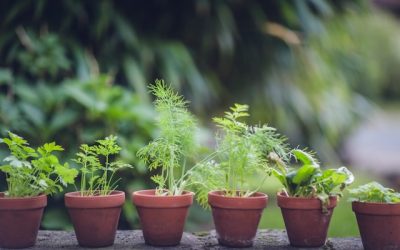Blog
There have been 25 million more farmed ruminants added to the planet each year (on average) over the past 50 years. That’s over 2 million per month. Decreasing the now over 4 billion farmed ruminants can significantly help in achieving climate change mitigation targets while also providing other valuable social and environmental advantages. There are many ways to achieve this reduction, and many avenues should be explored, but one area the scientific literature is clear on is the strategy to tax the highest ecological impacting agriculture production practices, and incentivize better practices.
There are of course several important human-caused sources of methane, including fossil fuels (especially natural gas), landfills, biomass burning and rice production. However, the leading source, largely exempt from climate policies, is farmed ruminants:

Source: adapted from Ripple et al., (2014)
Some claim that agriculture should be exempt from methane pledges and GHG reduction goals because they don’t want it to undermine national food security and believe small tweaks can shift animal agriculture to be a part of the climate solution. In reality, reductions in the number of cattle farmed would benefit global food security, the environment, and human health, and be addressed in far less expensive ways than other methane sources. Over 33% of total arable land is used for feed crops, including 80% of all soy specifically, which all has a significant feed-to-meat conversion loss of about 90%. This is a food waste crisis.
Food Climate Taxes & Incentives
In a country that has displaced a huge amount of native ecosystems to graze cows to produce milk, and hosts Fonterra as now one of the largest dairy companies in the world, New Zealand’s new proposal on taxing high-GHG producing food production starting in 2025 is a first:
“In a world-first, New Zealand appears set to introduce a scheme that will require farmers to pay for their agricultural greenhouse gas emissions, including the methane belched out by cows and nitrous oxide emitted through livestock urine.” – The Guardian
One recent study results show that including industrial meat and dairy producers’ full global emissions in national accounting would impact national targets for greenhouse gas reductions. Fonterra in New Zealand would make up more than 100% of New Zealand’s total emissions target in the coming decade with this more appropriate GHG accounting.

An independent government advisor showed that a tax on farming emissions, especially to help reduce beef and dairy in Denmark, is vital to achieve climate targets. The advisor called for a (€101) per tonne tax. While taxes are rarely seen as welcomed policy, they are one of a few necessary tools to create change away from the highest impact practices. If no new policies are introduced, farming in Denmark is expected to account for around 40% of emissions in 2030. Denmark would become the second country in the world behind New Zealand to create this tax.
One of the world’s leading ecologists, Dr. William Ripple, whose study and work warning humanity about the climate emergency has been signed by 15,364 scientists from 184 countries, included effective steps humanity can take to transition to sustainability, including “promoting dietary shifts towards mostly plant-based foods” (p. 1028). This and earlier work advocated for aligning incentives and taxes to create change:
“Influencing human behaviour is one of the most challenging aspects of any large-scale policy, and it is unlikely that a large-scale dietary change will happen voluntarily without incentives. Implementing a tax or emission trading scheme on livestock’s greenhouse gas emissions could be an economically sound policy that would modify consumer prices and affect consumption patterns.” – Ripple et al., (2014, p. 3)
By taxing the highest-emitting food production methods, countries are indirectly advocating for a plant-based food system. According to comprehensive analyses that take into account all aspects of the production process from ‘farm to plate’ the environmental impact of consuming ruminant meat is several times higher than high-protein plant-based foods; the GHG footprint of ruminant meat is 19-48 times higher, on average. This includes the effects of enteric fermentation, manure, feed, fertilizer, processing, transportation, and land-use changes, although wouldn’t include the opportunity to draw down significant carbon if land was rewilded. Although farming pigs, chickens, and fish, technically have a lower carbon equivalent footprint, they are still 3-10 times higher than high-protein plant-based foods, not to mention that they consume food that could be more efficiently consumed directly by humans.
All this highlights why aligning taxes and incentives with the most ecologically sound food choices and production methods, would better feed the world without destroying the planet.
While taxes are usually met with political pressures, they are still commonly used to curtail unsustainable or unhealthy behaviours. In Canada, 35% of the price of gas at the pump is tax which serves as a disincentive to consuming more fossil fuels. The Danish saturated fat tax in 2011 was indirectly a meat tax that shifted food consumption. It was met with strong political opposition, but that may not be as strong today.
A recent review from the University of Oxford suggests that an environmental tax on meat in high-income countries would at least increase its current retail price between roughly 20-60%, depending on meat type. Overall, western economic programs are inadvertently promoting products that have health, environmental, and social costs that are not internalized into the product. This is especially important when sustainable plant-based alternatives exist for consumers. Addressing animal agriculture’s economic externalities that skew the true cost is needed.
End Harmful Subsidies:
In addition to changing taxes and incentives, an earlier step, but likely more difficult, is achieving the COP15 Biodiversity Summit pledge to reduce subsidies deemed harmful to nature, with a share going to animal agriculture, by at least $500 billion by 2030.


A 2021 report found almost 90% of global farming subsidies are harmful. The UN agencies behind this report state that this agricultural support results in damage to people’s health, subsidizes the climate crisis, destroys nature, and drives inequality by excluding smallholder farmers, many of whom are racialized women. The handouts disproportionately prop up beef and milk produced by large industrialized groups. Without reform, the level of subsidies is on track to increase to $1.8 trillion a year by 2030.
“The United States federal government spends $38 billion every year subsidizing the meat and dairy industries. Research from 2015 shows this subsidization reduces the price of Big Macs from $13 to $5 and the price of a pound of hamburger meat from $30 to the $5 we see today.” – American Institute for Economic Research
Global investment in a plant-based food system, paired with land and ocean protection including nature-based solutions needs to significantly increase. One analysis showed that nature-based solution investments need to increase from $133B to $536B per year by 2050 and also include the direct shift away from funding that destroys nature. The alternative, in a not-so-distant future, is an unlivable planet destabilized by conflicts over what little resources remain for society as we know it.
Shift to a Plant-Based Food System
In order to restore nature, protect land and sea, and live better in harmony with wild animals on this planet, we require a plant-based food system that would free up at least 3 billion hectares of land.
The Plant-Based Treaty can help in achieving this and addressing the environmental crisis. It’s a global treaty that also includes local implementation at the city and societal institutional levels. The treaty, which has already been endorsed by over 74,000 individuals, over 1,000 organizations, and 20 cities including the capital of Scotland, can be summarized into three key areas: Relinquish, Redirect, and Restore.
Under Relinquish, the treaty demands an end to land use change for animal agriculture, including deforestation, building of new animal farms, and conversion of plant-based agriculture to animal agriculture. It also calls for the protection of Indigenous Peoples’ land and rights, a ban on live exports, and protection of forests and native ecosystems.
Under Redirect, the treaty demands the promotion of plant-based foods and the just transition away from animal-based food systems, declaration of a climate emergency, and update of government food and dietary guidelines to promote whole, plant-based food. Education and increased accessibility and greener-by-default strategies to plant-based meal plans in various schools, healthcare facilities, and institutions. Subsidizing fruits and vegetables to make a wholefoods, plant-based diet more affordable and accessible, especially in low income communities is key. Redirecting government subsidies for animal agriculture to environmentally-friendly production of plant-based food, while difficult, will be necessary. This treaty also calls for an introduction of a meat tax (including fish) with proceeds to fund restoration of land and seas destroyed by animal agriculture.


Under Restore, the treaty demands the restoration of key ecosystems such as forests, mangroves, and peat bogs, and reforestation of appropriate areas. 42% of current pastureland, for example, used to be forests or woody savannas (Searchinger et al., 2018). It also calls for subsidies for farmers and landowners to help draw down carbon and enhance biodiversity in science-backed ways like rewilding and reforestation projects. Last but not least, the treaty aims to enhance food justice by providing access to healthy food for all, especially low-income racialized and marginalized communities.
Supporting the Plant-Based Treaty’s demands to urgently address the environmental and climate crisis, by relinquishing the land ransom for animal agriculture, redirecting towards plant-based food systems, and actively restoring key ecosystems, we can build resilience and mitigate climate change together.

Nicholas Carter is an ecologist and co-founder of PlantBasedData.org, a library of peer-reviewed studies and summaries calling for plant-based diets. He’s helped launch a Canadian Centre for Climate Services data hub in Eastern Canada, has been a panelist for the Center for Biological Diversity, and a speaker at the launch of the documentary Meat the Future.
More from the blog
6 Important Calls To Action From The Safe And Just Report – Part One
By Miriam Porter
Grow Your Own Kale And Spinach For Healthy Green Smoothies
By Miriam Porter
The Importance Of Exercise And Tips On Building Muscle
By Miriam Porter



